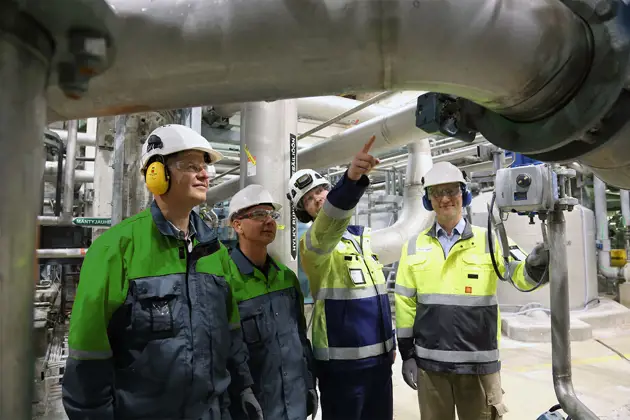Digitalization is a hot topic in the pulp and paper industry as well as among the suppliers to this industry. What does digitalization mean in practice? What kind of opportunities does it provide?

One of the things that digitalization does is that it enables more efficient data transfer and exchange between a mill and its supplier chain. Instead of building a point-to-point connection with each supplier, a mill can set up one multilateral connection through a cloud service with its suppliers of valves, pumps, instruments and motors, and more. Together, they form a digital business ecosystem.
Let’s take a look at a large pulp mill project with perhaps well over 100 suppliers. They transfer a vast amount of product data to the mill on spreadsheets or paper. Entering this data manually into the mill’s information systems takes months or longer. Some of it will actually never be transferred. This means that data about the installed base is deficient and gets outdated as time goes by. Also, it means that every time you need data about some product for maintenance purposes, you need to go to the site to check its type and condition. With perhaps tens of thousands of pieces of equipment in the process, this takes a lot of time.
Thanks to new technologies, it will be much faster, simpler and more efficient to transfer and update data. By using a multilateral connection, suppliers are able to electronically deliver their installed base data at the same time as the equipment delivery.
To boost the creation of digital business ecosystems, Neles is participating in projects organized by Lappeenranta University of Technology and Aalto University in Finland. In the field of flow control, Neles is a pioneer in digitalization. We have developed our systems and smart products for some 20 years now.
Ongoing pilot cases
Such a digital ecosystem is no longer utopia. It’s reality. Along with delivering valves, we also supply the installed base data in a digital format directly to our customers’ maintenance systems. The data is available for them immediately without any need for manual transfer. And we can update it anytime if there are changes.
The benefits of having immediate access to all data on the installed base are enormous. Such information not only helps maintenance and upkeep during operation but also has a much wider impact. To run the process as efficiently as possible, you need to know the condition of your valves, if you have right valves in the right place and if they are correctly sized.
It’s no wonder that the feedback from these major pulp and paper mills has been very positive.
Faster project engineering
A multilateral connection can already demonstrate its advantages during the engineering phase of each mill project. To select and size thousands of valves for a process, Neles gets a huge amount of process data from the engineering companies we work with. Traditionally, this data has been transferred to us on paper or in an Excel or pdf format. Then, we transfer it into our own engineering systems.
But now, having all this process data in a digital format makes valve selection and sizing much faster and reduces the risk of possible mistakes.
Analyzing digital data
Another interesting benefit of digital installed base data is the possibility to use it to analyze the causes of process disturbances. For example, long-term valve condition data can be compared with process data to determine whether some incidents always take place before a process disturbance.
By combining and screening all this big data, it is possible to find the root cause for a problem, and consequently, a solution to eliminate it.
To sum up, a process industry ecosystem with digital multilateral connections between engineering companies, suppliers and pulp & paper mills creates a new and efficient channel to exchange information in a way that boosts the competitiveness of all participants.
Text originally published in 2017, and slightly updated in April 2022, due to the company name change to Valmet

